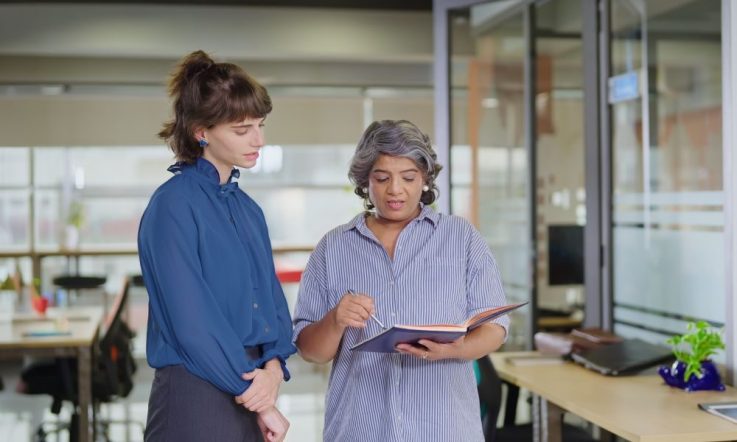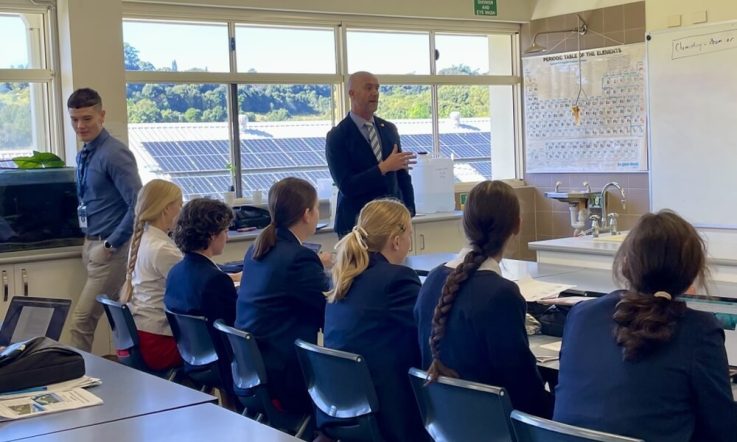Australia’s results from the Teaching and Learning International Survey (TALIS) have just been released. The survey captures the important voice of school educators. Here we explore some of the key findings on staff wellbeing, collegiality, mentoring support, and use of AI.
The OECD’s TALIS is the largest international survey of teachers and leaders, delving into teachers’ professional practices, school learning environments and working lives.
Six years on from the last cycle, educators from 55 countries and economies took part in 2024, including 359 schools and 6,040 teachers from the lower secondary and primary years here in Australia. The survey captures their firsthand knowledge and experiences to create a picture of the strengths and challenges in the profession across countries.
Australia’s participation in TALIS 2024 was managed by the Australian Council for Educational Research (ACER), and it released the Australian report yesterday to coincide with the OECD global release. The findings can be used as a springboard for reflection in your own context – from teaching and learning conversations with colleagues, to leadership planning.
Commenting on the Australian report, lead author Dr Tim Friedman says TALIS 2024 highlights both challenges and opportunities. ‘Teachers who believe in their ability to manage classrooms and engage students report greater satisfaction in their work. TALIS shows us that mentoring, professional development and collaboration can make a real difference in building teacher confidence and wellbeing.’
Teacher job satisfaction and wellbeing
Most Australian teachers remain positive about the profession. At both primary and lower secondary, 74% believe the advantages of teaching outweigh the disadvantages, and more than 80% report overall job satisfaction. There’s a strong link between teacher confidence and job satisfaction. Collegiality in Australian schools remains strong, with 92% of primary teachers and 89% of lower secondary teachers reporting they can rely on each other at their school.
One of the clear themes to emerge from the 2024 Australian data is teacher wellbeing, with teachers here reporting higher-than-average stress compared to many OECD peers. Contributing factors include administrative workload, classroom management demands, curriculum changes, and increasing classroom diversity.
Younger teachers, especially those under 30, report higher stress than those aged 50 and above: for primary teachers, 38% of those under 30 experience a lot of stress, compared to 29% for older colleagues; at lower secondary the proportions are 36% and 30%.
There are also differences between early career teachers who have been in the profession for 5 years or less, and those with 10 or more years’ experience: 62% of early career primary teachers reported classroom discipline as a source of stress compared to 45% of experienced teachers; at lower secondary the proportions are 55% and 38%.
TALIS 2024 identifies practical ways to support wellbeing, including mentoring, professional development, reducing administrative workload, and fostering stronger engagement with parents and guardians.
Induction and mentoring
TALIS asks teachers about induction activities, for those new to the profession or experienced teachers who are new to the school. Teachers are defined to have ‘recently arrived’ at their current school if they have 5 or less years’ teaching experience at that school in TALIS 2024.
Formal programs could include elements such as regular supervision by a principal, a reduction in teaching load, or formal mentoring from an experienced colleague, and informal supports might be providing a welcome handbook or general introductions to the school and work.
In Australia, 72% of recently arrived lower secondary teachers said they had participated in a formal induction program (up from 61% in 2018), while 84% reported taking part in informal induction activities (up from 66% in 2018). For Australian primary teachers, 59% reported participating in a formal program (up from 47 in 2018) and 79% informal activities (up from 58% in 2018).
Mentoring and being mentored are strongly linked to higher job satisfaction across education systems. In TALIS 2024, mentoring rates for early career Australian primary teachers (44%, up from 36% in 2018) were similar to those for early career lower secondary teachers (41%, up from 37% in 2018).
Classroom practices and teacher self-efficacy
Teachers report high levels of self-efficacy. More than 80% of lower secondary and primary teachers reported high self-efficacy in varying strategies for classroom instruction, helping every student progress, and making expectations about student behaviour clear. Teachers who report high levels of self-efficacy in classroom management are less likely to report maintaining classroom discipline as a source of stress.
Artificial intelligence (AI) featured as survey topic for the first time in 2024, with teachers asked about their use of AI, and their views on the benefits and challenges.
Two-thirds (66%) of Australian lower secondary teachers reported using AI in the previous 12 months, compared to less than half (47%) of the primary teachers surveyed. When asked about common uses the same answers featured in the top 2: ‘efficiently learn about and summarise a topic’ (71% at lower secondary and 64% at primary) and ‘generate lesson plans and activities’ (71% lower secondary,68% primary).
Of those Australian teachers who reported not using AI in their teaching, 75% of lower secondary teachers and 84% of primary teachers reported not having the knowledge or skills to teach using AI.
The Australian TALIS 2024 report also shares findings on the perceived benefits and challenges of using AI. ‘The benefits of using AI tools in education that were most commonly reported by Australian teachers were enabling teachers to adapt learning material to different students’ abilities (65% at lower secondary, 52% at primary), helping teachers write or improve lesson plans (64% at lower secondary, 52% at primary), and supporting students with specific needs (55% at lower secondary, 46% at primary).
‘… The challenges that were most commonly reported by Australian teachers were that AI tools enable students to misrepresent others’ work as their own (87% at lower secondary, 58% at primary). Large proportions of teachers also believed that AI made recommendations that might not be appropriate or correct (82% at lower secondary, 61% at primary).’
The Australian TALIS 2024 report has been released by ACER on behalf of the Australian, state and territory governments and is available download at the ACER Repository.
The international TALIS 2024 report has been released by the OECD and is available to download from the OECD publications web page.
References
Friedman, T., Ainley, J., Schulz, W., & Dix, K. (2025). TALIS 2024. Australia’s Report. Australian Council for Educational Research. https://doi.org/10.37517/978-1-74286-801-1
OECD. (2025). Results from TALIS 2024: The State of Teaching. OECD Publishing. https://doi.org/10.1787/90df6235-en
Mentoring and being mentored is a great way to develop teacher expertise in your school and is strongly linked in TALIS data to higher job satisfaction.
As a school leader, what mentoring opportunities do you provide for staff? How do you assess the success of mentoring relationships in your school?
What are some of the qualities you look for in a mentor? How do you ensure you’re getting the most out of the relationship with your mentor?



